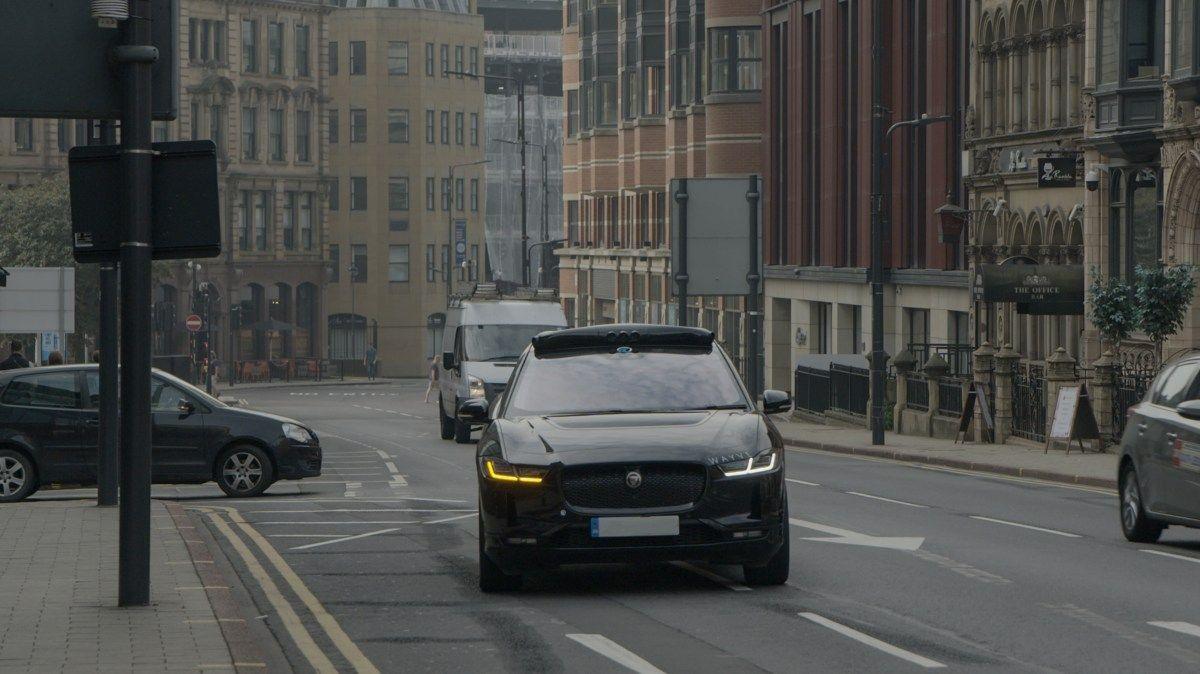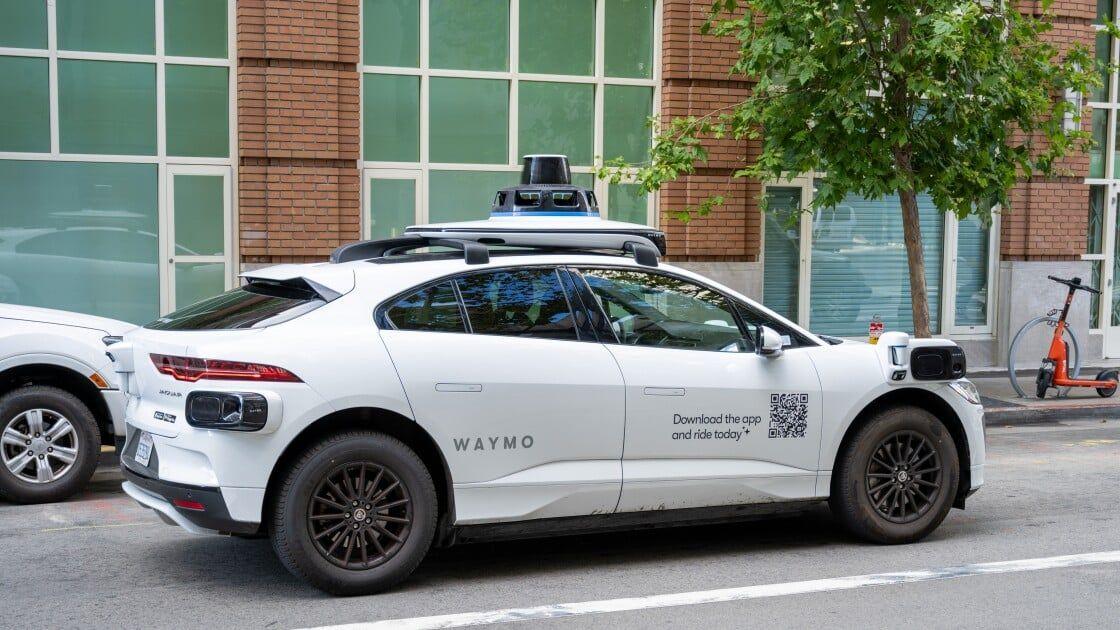Waymo to Launch Autonomous Ride-Hailing Service in London by 2026
5 Sources
5 Sources
[1]
Waymo aims to launch driverless taxis in London next year
Waymo, the Alphabet-owned self-driving car company, plans to launch its robotaxis in London next year, after the UK government accelerated rules to allow fully driverless services. The company announced on Wednesday that the British capital will be Waymo's first European city, having previously launched in five cities in the US and rolled out a pilot programme in Tokyo in April. Waymo's launch will be a boost to the UK's efforts to catch up with the US and China, where autonomous vehicles have already become a familiar sight on public roads. "We've demonstrated how to responsibly scale fully autonomous ride-hailing, and we can't wait to expand the benefits of our technology to the United Kingdom," said Tekedra Mawakana, Waymo's co-chief executive. Last year's approval of the UK Automated Vehicles Act established a framework to put self-driving cars on British roads but it is subject to local authority approval and compliance with safety requirements. In a bid to accelerate the process, the Labour government this summer announced a new scheme to allow small numbers of robotaxis and bus-like services to start serving customers next year on a pilot basis, without a safety driver being needed behind the wheel. Waymo has begun discussions with the UK Department for Transport and Transport for London but is yet to receive the necessary approvals. Uber and Wayve, the UK-based autonomous driving start-up, said in June that they hoped to launch a driverless taxi service in London as soon as next year, pending regulatory clearance. Waymo already has more than 800 robotaxis operating a commercial service in the San Francisco Bay Area, with a total of more than 2,000 across the US. In total, its robotaxis have now driven more than 100mn fully autonomous miles. Tesla, its main US rival, last month expanded public availability of its robotaxi pilot in Austin, while Amazon-owned Zoox recently began testing in Las Vegas. In China, Baidu and Pony AI are scaling up their driverless ride-hailing services in Beijing, Shanghai and other major cities. Waymo is likely to follow its US playbook in London, starting out with a small number of vehicles in a limited area of the city and restricting the number of customers who can access them as it tests out the service. The first of Waymo's fleet of Jaguar Land Rover electric I-Pace vehicles kitted out with its sensors and computing systems will start to appear on London's streets in the next few weeks to map the city and train its virtual "driver". It plans to test the vehicles over a 100-square-mile area of London. When its service launches, passengers will be able to hail a Waymo using the company's app. It is also working with Uber and Lyft to integrate its robotaxis into their ride-hailing apps in some US cities. Advocates of autonomous vehicles say they are safer than human drivers and can help to reduce the number of fatalities on British roads. However, black cab drivers have argued that they cannot operate as reliably as an experienced human driver, especially in a city as dense and crowded as London. Speaking in London last week, Missy Cummings, a robotics and autonomy professor at George Mason University, questioned how easily Waymo and other US companies would be able to adapt to British roads. "How generalisable is a computer vision system trained in America, in San Francisco or LA or Austin . . . to the UK?" she said at the event hosted by Pave UK, an autonomous driving industry group. "I don't know. I can't tell you for sure, but my suspicion is not very." Heidi Alexander, the UK transport secretary, said she was "delighted" by Waymo's planned launch. "Boosting the AV sector will increase accessible transport options alongside bringing jobs, investment and opportunities to the UK," she said.
[2]
Waymo to launch autonomous ride-hailing service in London next year
Oct 15 (Reuters) - Alphabet's (GOOGL.O), opens new tab Waymo plans to launch its fully driverless ride-hailing service in London in 2026, the robotaxi firm said on Wednesday, as it looks to expand its footprint to major international cities. Waymo has grown slowly but steadily over the years in the United States despite tough regulations and expensive technology. Now, it is picking up speed through partnerships with ride-hailing platforms and fleet operators at a time when Tesla (TSLA.O), opens new tab is rolling out its long-promised robotaxi service in the country. Earlier this year, Waymo started collecting data in Tokyo, Japan and testing its vehicles operated by human drivers in cooperation with Japanese taxi firm Nihon Kotsu and with Go, which operates a mobile app for hailing taxi rides. In London, Waymo said it will collaborate with vehicle financing firm Moove as it prepares for the rollout, and is actively engaging with local and national regulators to secure necessary approvals. Waymo vehicles are now on the way to London, where safety drivers will start testing the vehicles before fully autonomous operations begin next year, a Waymo spokesperson said. Waymo currently serves more than 250,000 paid trips every week with about 1,500 vehicles in U.S. cities such as San Francisco, Los Angeles, Phoenix, Arizona, Atlanta, Georgia and Austin, Texas. Waymo has partnered with Moove to handle its fleet operations, facilities and charging infrastructure in Phoenix and next year in Miami, Florida. Ride-hailing firm Uber (UBER.N), opens new tab, which offers Waymo vehicles on its app in Atlanta and Austin, announced in June plans to trial fully driverless rides in the UK from spring 2026 through its partnership with AI startup Wayve. Commercializing autonomous vehicles has proven difficult in the U.S. amid setbacks for several companies, including General Motors' (GM.N), opens new tab Cruise, due to collisions, recalls and federal investigations. Reporting by Kritika Lamba in Bengaluru and Abhirup Roy in San Francisco; Editing by Leroy Leo and Lincoln Feast. Our Standards: The Thomson Reuters Trust Principles., opens new tab * Suggested Topics: * Autos & Transportation * ADAS, AV & Safety * Manufacturing * Sustainable & EV Supply Chain
[3]
Waymo to launch self-driving taxis in London next year
Waymo is the second company to say it will bring robotaxis to the UK. American robotaxi firm Waymo announced on Wednesday that it plans to begin operations in the United Kingdom's capital in 2026. It said it will start testing its self-driving cars in London in the coming weeks while it works to secure permissions for autonomous ride-hailing there. "We've demonstrated how to responsibly scale fully autonomous ride-hailing, and we can't wait to expand the benefits of our technology to the United Kingdom," Waymo co-chief executive Tekedra Mawakana said in a statement. UK regulations require self-driving cars to meet safety requirements and have a safety level that is at least as high as "careful and competent human drivers". The rules are expected to be fully implemented by 2027, and the Waymo rollout is part of an early adoption programme. "I'm delighted that Waymo intends to bring their services to London next year, under our proposed piloting scheme," Heidi Alexander, the UK's secretary of state for transport, said in a statement. Waymo is not the only self-driving car company eyeing European markets. Earlier this year, US ride-hailing app Lyft said it would partner with Chinese artificial intelligence (AI) firm Baidu to introduce robotaxis in the UK and Germany in 2026. However, safety incidents involving self-driving cars have raised public concerns in recent years that could hinder their adoption - at least at first. For example, in 2024 a self-driving Tesla crashed and killed a motorcyclist in the United States. The same year, a driverless taxi operated by Baidu struck a pedestrian in Wuhan, China. However, Waymo says driverless technology can actually help make roads safer. The firm says its data shows that roads where it operates report five times fewer injury-causing collisions overall and 12 times fewer incidents involving pedestrians, compared with human drivers. Waymo began as a Google project in 2009 and has operated commercially in the United States since 2018. The company has also partnered with local firms in Japan to begin testing its taxis there, though it is not yet clear when it might launch commercially.
[4]
Alphabet's Waymo plans to launch robotaxi services on London roads By Invezz
Invezz.com - Alphabet's autonomous vehicle unit, Waymo, announced plans to bring its robotaxi services to London, marking its first foray into the European market. The company said on Wednesday that it will begin test drives on London streets in the coming months, with human safety specialists at the wheel. Pending regulatory approvals from local and national authorities, Waymo aims to launch its commercial robotaxi service in 2026. London will be Waymo's second international city after Tokyo, where testing commenced in early 2025. In the United States, Waymo has steadily expanded its footprint, offering commercial services in Los Angeles, Phoenix, San Francisco, Atlanta, and Austin, Texas. Additional US expansions are planned for Miami and Washington, D.C., and the company has secured permits to start autonomous testing with trained safety drivers in New York City. Details of Waymo's London plansWaymo's London fleet will consist of Jaguar iPACE electric vehicles equipped with the company's proprietary Waymo Driver autonomous systems. The company already has engineering teams based in Oxford and London and plans to collaborate with Moove to manage fleet operations and maintenance. Moove provides financing, vehicle cleaning, some repairs, and charging services to transportation companies, including Waymo and Uber, which also invests in the startup. The company highlighted its safety record, stating that Waymo vehicles are "involved in five times fewer injury-causing collisions, and twelve times fewer injury-causing collisions with pedestrians compared to humans," based on internal data. To date, Waymo's autonomous vehicles have logged 100 million fully autonomous miles on public roads and provided more than 10 million paid rides. The autonomous taxi marketIn June, the UK introduced an accelerated framework for commercial pilots by autonomous vehicle ventures to attract investment in self-driving technology. London has also set a "Vision Zero" goal to eliminate all serious injuries and fatalities in transportation by 2041. Waymo is part of Alphabet's "Other Bets" segment, which reported $373 million in revenue in the second quarter alongside a loss of $1.25 billion. Alphabet is scheduled to release third-quarter results on October 29. The move comes amid a competitive global autonomous vehicle market. Waymo relies on radar, lidar, and other sensors, whereas other firms, such as Tesla and Wayve, pursue camera-based systems. Despite challenges to commercialising self-driving technology in the US, including regulatory setbacks and safety incidents for competitors such as General Motors' Cruise, Waymo continues to expand both domestically and internationally. Currently, Waymo operates approximately 1,500 vehicles in US cities, serving over 250,000 paid trips per week, and partners with Moove for fleet operations and infrastructure management. Uber has also announced plans to trial fully driverless rides in the UK through its partnership with AI startup Wayve, beginning in spring 2026.
[5]
Waymo to launch autonomous ride-hailing service in London next year
(Reuters) -Alphabet's Waymo plans to launch its fully driverless ride-hailing service in London in 2026, the robotaxi firm said on Wednesday, as it looks to expand its footprint to major international cities. Waymo has grown slowly but steadily over the years in the United States despite tough regulations and expensive technology. Now, it is picking up speed through partnerships with ride-hailing platforms and fleet operators at a time when Tesla is rolling out its long-promised robotaxi service in the country. Earlier this year, Waymo started collecting data in Tokyo, Japan and testing its vehicles operated by human drivers in cooperation with Japanese taxi firm Nihon Kotsu and with Go, which operates a mobile app for hailing taxi rides. In London, Waymo said it will collaborate with vehicle financing firm Moove as it prepares for the rollout, and is actively engaging with local and national regulators to secure necessary approvals. Waymo vehicles are now on the way to London, where safety drivers will start testing the vehicles before fully autonomous operations begin next year, a Waymo spokesperson said. Waymo currently serves more than 250,000 paid trips every week with about 1,500 vehicles in U.S. cities such as San Francisco, Los Angeles, Phoenix, Arizona, Atlanta, Georgia and Austin, Texas. Waymo has partnered with Moove to handle its fleet operations, facilities and charging infrastructure in Phoenix and next year in Miami, Florida. Ride-hailing firm Uber, which offers Waymo vehicles on its app in Atlanta and Austin, announced in June plans to trial fully driverless rides in the UK from spring 2026 through its partnership with AI startup Wayve. Commercializing autonomous vehicles has proven difficult in the U.S. amid setbacks for several companies, including General Motors' Cruise, due to collisions, recalls and federal investigations. (Reporting by Kritika Lamba in Bengaluru and Abhirup Roy in San Francisco; Editing by Leroy Leo and Lincoln Feast.)
Share
Share
Copy Link
Alphabet's Waymo announces plans to expand its fully driverless robotaxi service to London, marking its first European venture. The company aims to begin operations in 2026, pending regulatory approvals.
Waymo's European Expansion
Waymo, the autonomous vehicle company owned by Alphabet, has announced plans to launch its fully driverless ride-hailing service in London by 2026
1
2
. This move marks Waymo's first venture into the European market and follows its successful operations in several U.S. cities and a pilot program in Tokyo1
.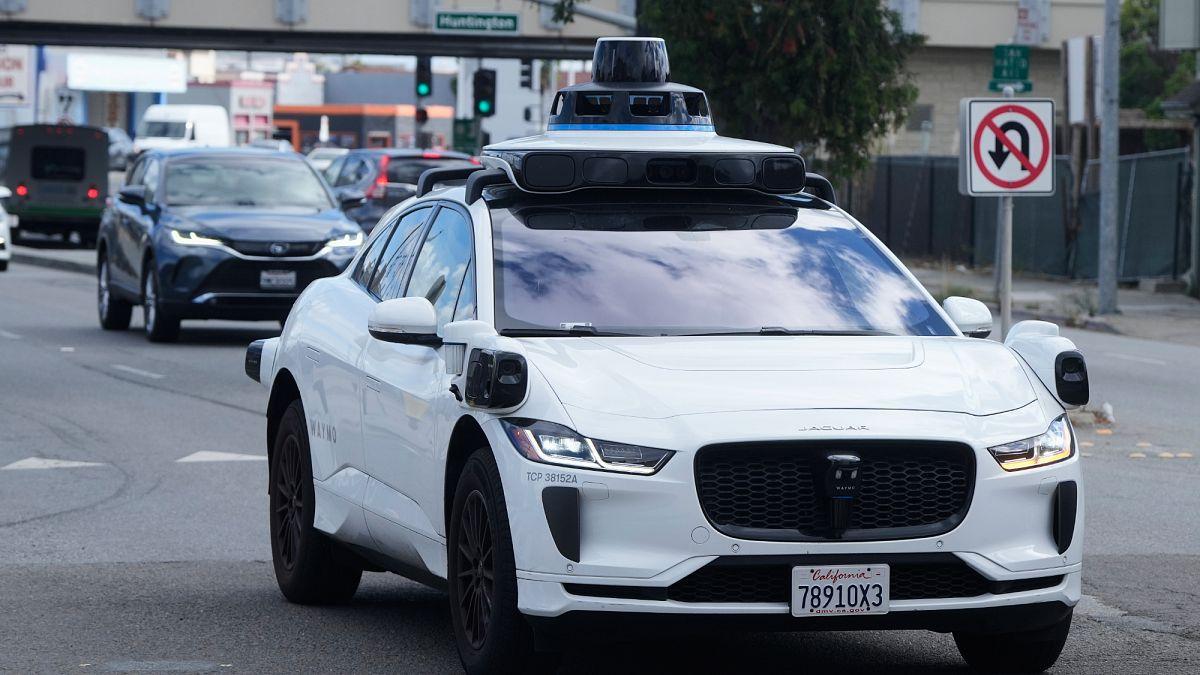
Source: Euronews
Preparation and Testing
In the coming weeks, Waymo will begin deploying its fleet of Jaguar Land Rover electric I-Pace vehicles, equipped with its proprietary sensors and computing systems, to map London and train its virtual 'driver'
1
. The company plans to test its vehicles over a 100-square-mile area of the city1
. Safety drivers will initially operate these vehicles before transitioning to fully autonomous operations2
.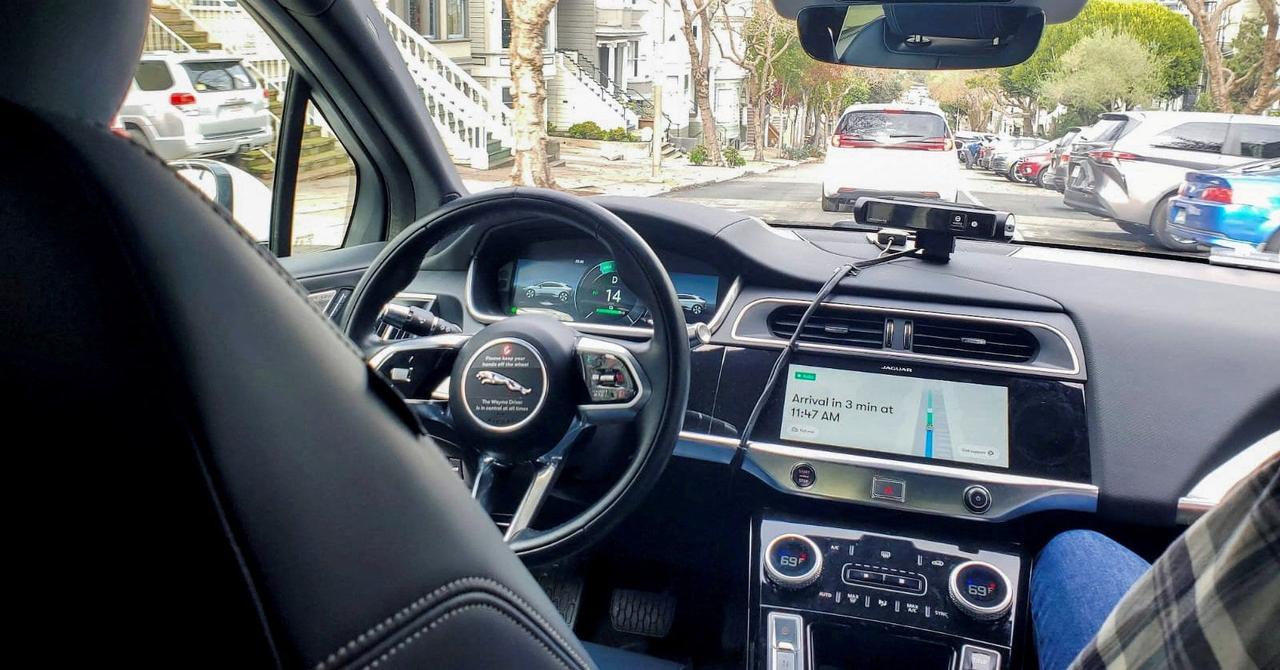
Source: Reuters
Regulatory Landscape and Partnerships
Waymo is actively engaging with the UK Department for Transport and Transport for London to secure necessary approvals
1
. The company's launch aligns with the UK's recent acceleration of rules allowing fully driverless services, including the Automated Vehicles Act and a new scheme for piloting robotaxis without safety drivers1
3
.To facilitate its London operations, Waymo has partnered with vehicle financing firm Moove to manage fleet operations, facilities, and charging infrastructure
2
4
.Related Stories
Waymo's Track Record and Competition
Waymo currently operates about 1,500 vehicles across several U.S. cities, serving over 250,000 paid trips weekly
2
5
. The company claims its vehicles are involved in five times fewer injury-causing collisions and twelve times fewer pedestrian-related incidents compared to human drivers4
.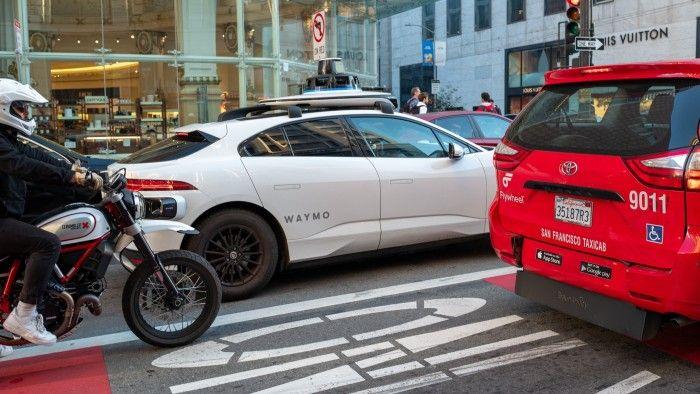
Source: FT
In the UK market, Waymo will face competition from other companies planning to launch autonomous services. Uber, in partnership with AI startup Wayve, has announced plans to trial fully driverless rides in the UK from spring 2026
2
5
.Challenges and Future Prospects
While the expansion represents a significant milestone for Waymo, challenges remain. Experts question how easily U.S.-trained computer vision systems will adapt to British roads
1
. Additionally, the autonomous vehicle industry has faced setbacks in the U.S., including collisions, recalls, and federal investigations2
5
.Despite these challenges, Waymo's expansion into London aligns with the UK's efforts to become a leader in autonomous vehicle technology and its 'Vision Zero' goal to eliminate all serious injuries and fatalities in transportation by 2041
4
.References
Summarized by
Navi
[5]
Related Stories
Recent Highlights
1
Google Gemini 3.1 Pro doubles reasoning score, beats rivals in key AI benchmarks
Technology

2
Nvidia and Meta forge massive chip deal as computing power demands reshape AI infrastructure
Technology

3
ChatGPT cracks decades-old gluon amplitude puzzle, marking AI's first major theoretical physics win
Science and Research

